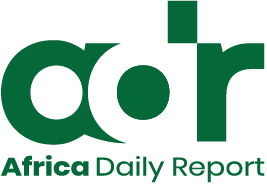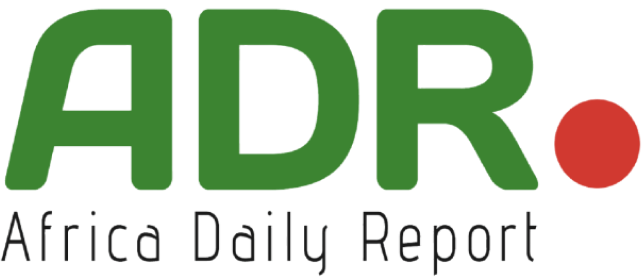The Union for Democracy and Social Progress (UDPS), the ruling party in the Democratic Republic of Congo under President Félix Tshisekedi, faces an unprecedented political storm. For months, internal tensions have torn apart this once-unified party, as accusations of mismanagement and favoritism target Augustin Kabuya, the party’s secretary-general. This conflict reveals deep fractures within the DRC’s main political force and could have serious implications not only for the UDPS but for the country’s stability as a whole. Faced with this crisis, President Tshisekedi finds himself in a dilemma: should he maintain a stance of impartial leadership, or intervene to save the unity of his own party? But can national stability be preserved without first restoring cohesion within his own ranks?
Historical Context and Long-standing Internal Tensions
The UDPS has never been an ordinary party. Founded by the iconic Étienne Tshisekedi, the UDPS was the voice of opposition for decades, challenging successive regimes in the pursuit of freedom and social justice for the Congolese people. Born from adversity, the UDPS developed a resilient character, dedicated to defending democratic values at all costs. However, gaining power revealed another side of the UDPS, one marked by personal ambitions and power struggles. While the party’s history is rich with battles and sacrifices, it is also marked by internal conflicts. Every time a voice rises to contest the leadership, the party’s very soul seems to waver between its courageous opposition past and its current role as the dominant party.
The arrival of Kabuya as secretary-general in 2019 only heightened these divisions. Close to the president, Kabuya is seen as a pillar of loyalty within the UDPS. Yet, his centralized and authoritarian management style has sparked growing rebellion among party members. “The UDPS is undergoing an identity crisis, torn between its legacy of democracy and the realities of power,” says Marie Kalemba, a political analyst and former advisor to the opposition in the DRC. She believes the current situation stems directly from the party’s structural weaknesses and the challenging transition from an opposition movement to a ruling party.
Contested Leadership: Grievances Against Augustin Kabuya
Kabuya now finds himself at the center of the storm, accused of monopolizing decision-making and favoring his close circle at the expense of collective governance. His leadership style, criticized as a personality cult, outrages those who see the UDPS as a bastion of Congolese democracy. Through actions seen as overly centralized, he appears to have redefined the party’s governance around himself, disregarding the values of transparency and collaboration dear to long-time activists. For detractors, Kabuya embodies the UDPS paradox: a party of freedom succumbing to autocratic tendencies.
“As a mass party, the UDPS cannot survive crises without participatory governance,” asserts Jean-Baptiste Kazi, an analyst specializing in Congolese politics. According to him, “Kabuya risks turning the UDPS into a power-sustaining machine rather than a democratic force for its members and the people.” His choices go beyond mere internal quarrels, exposing the UDPS to criticisms that could permanently tarnish its image.
Tshisekedi’s Involvement: A Hesitant Intervention
In this crisis, Félix Tshisekedi, president of the DRC and central figure in the UDPS, has taken an ambiguous stance, fluctuating between neutrality and intervention. His initial non-interference was seen as a commitment to respecting the party’s “democratic vitality.” However, this neutrality also reflected caution, or even hesitation, in a conflict where every move could bolster one faction or weaken another. The president’s silence has only allowed tensions to build, prompting influential figures to call for direct intervention. Recently, Tshisekedi met with a delegation of dissidents, indicating his awareness of the need to act to preserve party cohesion.
But the balance is delicate. How can he intervene without losing the support of those who see him as the guardian of the founding values? Can a party at war with itself be pacified without undermining his own authority? “Tshisekedi faces a delicate dilemma,” explains scholar Henri Mukendi. “Excessive intervention could empower the dissenting faction by casting them as victims, while passivity could cause the UDPS to lose legitimacy among advocates for change.” This dilemma underscores the essence of politics: how to balance loyalty and justice without destroying what one aims to protect?
Challenges for the UDPS and Succession Prospects
Beyond the current crisis, this power struggle within the UDPS raises a crucial question: who will carry the party’s legacy when Tshisekedi leaves office? The Congolese Constitution limits presidential terms to two, forcing the party to consider succession sooner rather than later. This debate, once overshadowed by Tshisekedi’s charismatic presence, now emerges with renewed intensity. Who among the party’s younger or more seasoned figures can embody this continuity without compromising the UDPS’s foundation? Dissidents like Eteni Longondo are not only seeking to displace Kabuya but are positioning themselves for the future, casting their ambitions beyond the current crisis.
However, the battle for succession risks eroding the trust within the party. “Without a clear succession plan, the UDPS could implode under the weight of internal rivalries,” warns Luc Ndaye, an analyst in African governance. Internally, factional infighting weakens the UDPS’s very structure, exposing its vulnerabilities to public scrutiny. If the UDPS fails to find a peaceful and constructive resolution, it could lose the support of a population weary of internal strife, offering the opposition an opportunity to regain ground.
Implications for Political Stability in the DRC
Beyond the UDPS, this internal crisis risks impacting the entire DRC. The country faces major challenges, including armed group incursions in the east, a fragile economy, and diplomatic pressures from neighboring countries. In this context, division within the ruling party further undermines governance. The DRC, a giant striving for stability, does not need a divided party but rather a strong, united leadership capable of addressing regional crises and preserving territorial integrity. Every minute Tshisekedi spends managing internal strife is a minute less for tackling the nation’s critical issues.
African history is replete with examples of once-powerful parties falling from grace due to internal disputes. In South Africa, the ANC has often been paralyzed by leadership conflicts, while in Zambia, the Patriotic Front saw its internal divisions lead to its electoral defeat in 2021. If the UDPS cannot restore its unity, it risks losing not only its political leadership role but also its legitimacy in the eyes of the Congolese people. Tshisekedi and the party’s leaders must learn from these experiences to avoid a similar trajectory.
Conclusion: A Defining Test for the DRC’s Political Future
The crisis within the UDPS is a trial by fire for Félix Tshisekedi. Beyond internal disputes, the president’s ability to maintain party cohesion and restore confidence is at stake. The DRC, seeking stability and reforms, cannot afford to watch its dominant party descend into discord. Tshisekedi must play the role of mediator with exceptional skill, as each decision he makes will influence not only the future of the UDPS but also the country’s political fate.
This crisis could very well redefine the Congolese political landscape. “The UDPS stands at a crossroads, and the choices made in the coming months will determine not only its survival but also the future of the DRC,” concludes Didier Mulumba, a political science researcher. If Tshisekedi manages to restore peace within the UDPS, he will strengthen his position and that of his party to face future challenges. But if he fails, the rift may widen, providing the opposition a chance to assert itself and reshape the political future of the DRC.
© 2024 – Odon Bulamba / Africa Daily News









